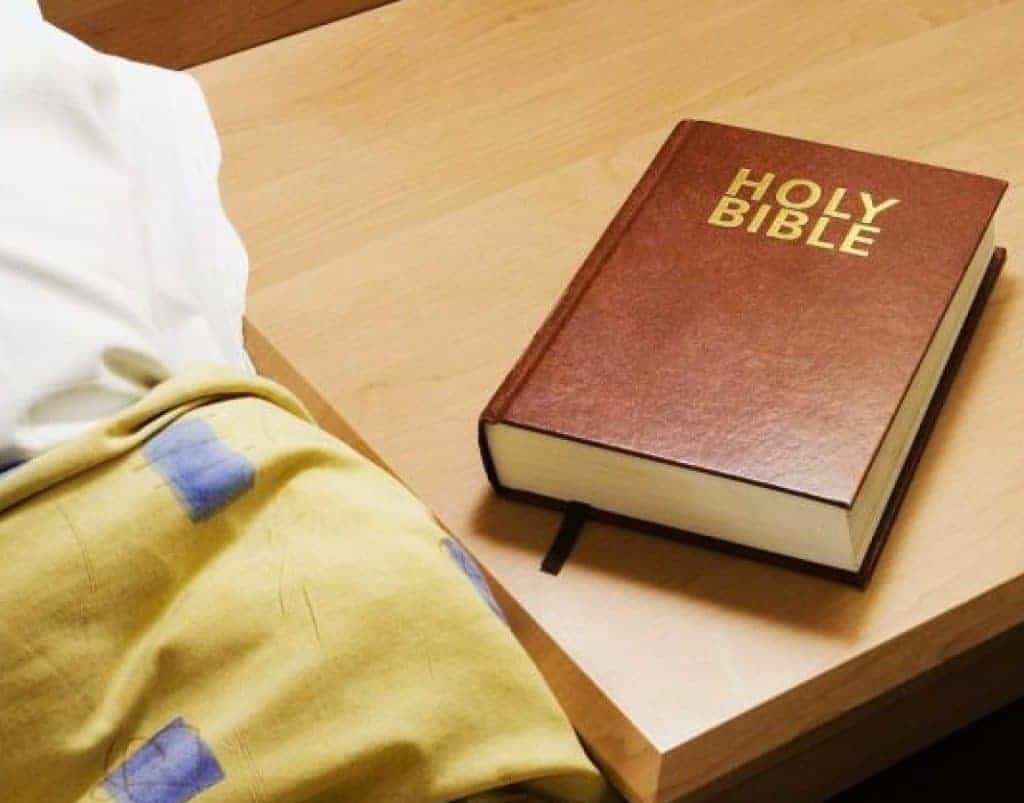The debate in Georgia over the presence of Bibles in state-owned cabins pits religious freedom against government neutrality. This case, involving the First Amendment, could set a precedent for managing religion in public spaces. Both atheist and religious organizations have pushed the conflict to its limits, sparking an intense and necessary debate.
State Neutrality or Religious Imposition? The Case of the Bibles in Georgia
Last summer, a simple vacation trip ignited a debate in Georgia, United States, which many see as a test of the limits of the First Amendment.
On one side lies the right of every individual to express their faith; on the other, the government’s commitment not to establish or promote any religion.
This tension, now widely referred to as the “Bible war,” began when an atheist visitor discovered several copies of the Bible inside cabins belonging to state parks. Authorities immediately removed them, triggering protests from the religious community and subsequent intervention by the governor.
While some view this action as a case of constitutional protection, others interpret it as an attempt to censor religious freedom of expression.
Origins of the Controversy and the Governor’s Official Response
The controversy began with the discovery of nine Bibles inside a state-owned cabin in northern Georgia.
Ed Buckner, former president of American Atheists (an atheist advocacy group), argued that this practice violated the separation of Church and State as stipulated by the First Amendment to the United States Constitution.
Upon receiving his complaint, the Department of Natural Resources decided to temporarily remove the books to prevent potential lawsuits while analyzing whether their presence in state facilities could be considered an official promotion of the Christian faith.
This removal, however, immediately drew backlash from large segments of the public.
Several religious organizations and individual citizens deemed the action taken by the Department of Natural Resources to be excessive, prompting Georgia Governor Nathan Deal to intervene. His decision was to restore the Bibles to the cabins, arguing that the books had been donated by external groups at no cost to the state.
In his view, the presence of a sacred book on a nightstand does not violate constitutional norms as long as other groups, religious or not, are allowed to place literature in these public spaces.
The Constitutional Debate and the Atheist Organization’s Perspective
Article VI of the Georgia Constitution aligns with the federal Constitution and is therefore subject to the interpretation of the First Amendment.
This amendment, which prohibits the government from establishing an official religion and guarantees the free exercise of faith, has become the epicenter of the “Bible war.”
Proponents of Buckner’s position argue that the books should be removed because state parks must remain neutral in matters of belief. Conversely, the state government and its supporters contend that no one is being forced to read the Bibles and that denying the opportunity to make these texts available would amount to restricting certain groups’ religious freedom.
Following the governor’s decision, Buckner has not hidden his intention to take the matter to court.
The Freedom from Religion Foundation, known for its numerous actions against religious interference in state institutions, issued a letter opposing the reinstatement of the books. Their stance holds that any act perceived as state endorsement of a specific religion infringes upon the constitutional principle of neutrality.
In fact, the organization emphasizes that if Bibles are allowed, then groups of other beliefs (or even those with none) should be permitted to place their own publications under the same conditions.
Arguments for Religious Freedom and Repercussions
Within this context, Georgia’s official position is that the mere availability of Bibles does not infringe on individual rights, as no religious participation is required. Additionally, they underscore that any book, whether religious, philosophical, or literary, could also be included in these rooms if it meets the requirement of being donated privately.
By this measure, the government aims to demonstrate that Georgia is not using public funds to acquire the texts nor attempting to impose a religion. This distinction contrasts significantly with cases where state agencies fund the purchase of sacred texts or mandate their reading.
The so-called “Bible case in state parks” not only impacts the relationship between religion and public space but also raises questions about preserving the balance between respect for cultural diversity and government neutrality.
Many constitutional law experts believe that, should the case reach court, it could set a significant precedent for other states with similar practices. For example, some publicly managed tourist sites often provide religious or spiritual literature without a consistent policy. It is becoming increasingly clear that these kinds of legal challenges will continue to arise as the country evolves in its demographic and cultural composition.
The Role of Society in the Search for Balance
The stakeholders in this litigation hope that the courts will issue a definitive clarification on the presence of religious materials in state properties. However, beyond the legal route, civil society plays a crucial role.
Disseminating accurate information, fostering respectful dialogue, and promoting tolerance can help build middle-ground solutions that validate the rights and perspectives of all. Undoubtedly, the social fabric is enriched when public participation increases and the voices of diverse groups are considered.
The development of this “Bible war” provides a snapshot of the tensions that arise when constitutional principles are applied in real-world scenarios. Ultimately, the controversy reflects the vitality of democratic debate within the United States, where respect for religious freedom coexists with the demand for governmental neutrality.
The next time a traveler opens the drawer of a nightstand in a Georgia cabin, they might find more than just a simple book: they will find a reminder of the importance of defending freedom of worship while also protecting every citizen from the imposition of any belief.
Mike Rivero — Atheism in the United States





